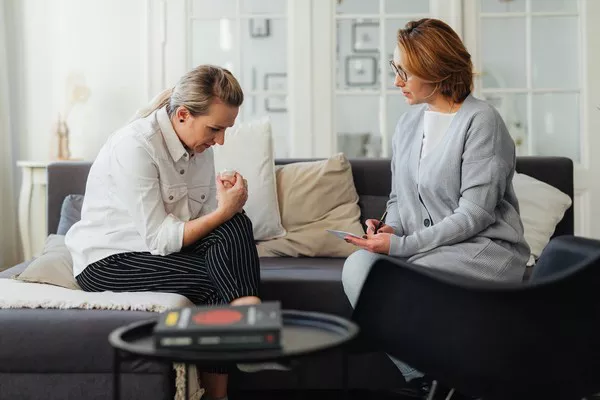Low self-esteem can impact various aspects of our lives, including our relationships. When individuals struggle with low self-esteem in a relationship, it can lead to feelings of inadequacy, insecurity, and difficulties in communication and intimacy. In this article, we will explore effective strategies for dealing with low self-esteem within the context of a relationship, fostering personal growth, and nurturing a healthy and fulfilling partnership.
Recognize and Acknowledge Low Self-Esteem
Self-Reflection: Take time to reflect on your self-esteem and its impact on your relationship. Acknowledge and accept your feelings of low self-esteem, recognizing that they are valid but not defining of your worth or abilities.
Open Communication: Discuss your struggles with your partner in an open and honest manner. Sharing your feelings can help create understanding and empathy, fostering a supportive environment in which to address and overcome low self-esteem.
Cultivate Self-Awareness and Self-Compassion
Identify Negative Thought Patterns: Become aware of negative self-talk and self-critical thoughts. Challenge and reframe these thoughts by replacing them with positive and realistic affirmations.
Practice Self-Compassion: Treat yourself with kindness and compassion. Practice self-care, engage in activities that bring you joy, and celebrate your achievements, no matter how small.
Build a Supportive Relationship
Healthy Boundaries: Establish and communicate your boundaries within the relationship. Ensure that your needs and feelings are respected and valued.
Emotional Support: Seek emotional support from your partner. Express your needs and ask for reassurance when necessary. A supportive partner can help boost your self-esteem by providing encouragement and validation.
Develop Personal Growth and Self-Improvement
Set Realistic Goals: Identify personal goals and aspirations outside of the relationship. Set achievable targets and work towards them, celebrating your progress along the way. Accomplishing personal goals can significantly boost self-esteem.
Engage in Self-Development Activities: Invest time and effort in activities that promote personal growth and self-improvement. This can include pursuing hobbies, learning new skills, or seeking professional development opportunities. Engaging in activities that enhance your self-confidence and sense of accomplishment can positively impact your overall self-esteem.
Seek Professional Help
Therapy or Counseling: Consider seeking professional help from a therapist or counselor who specializes in self-esteem and relationship issues. They can provide guidance, support, and tools to overcome low self-esteem and navigate relationship challenges.
Support Groups: Joining support groups or participating in workshops focused on self-esteem can provide a sense of community and the opportunity to learn from others who have faced similar challenges.
Practice Effective Communication
Express Your Needs: Clearly communicate your needs and desires to your partner. Be open and honest about how low self-esteem affects you and what support or reassurance you may need from them.
Active Listening: Develop active listening skills to better understand your partner’s perspective and feelings. Validate their emotions and show empathy, fostering a deeper connection and mutual understanding.
Focus on Strengths and Achievements
Celebrate Accomplishments: Acknowledge and celebrate your personal strengths and achievements. Recognize that you have unique qualities and talents that contribute to the relationship.
Gratitude and Appreciation: Express gratitude for the positive aspects of your relationship. Focus on the qualities you appreciate in yourself and your partner, fostering a sense of positivity and appreciation.
Challenge Negative Comparisons
Avoid Social Comparison: Avoid comparing yourself to others, especially on social media, as it can exacerbate feelings of inadequacy. Remember that everyone has their own journey and struggles.
Embrace Individuality: Embrace your individuality and value what makes you unique. Recognize that you bring something valuable to the relationship, and your worth is not defined by external comparisons.
Seek Professional Help
Therapy or Counseling: If low self-esteem continues to impact your relationship despite your efforts, consider seeking professional help. A therapist or counselor can provide guidance, tools, and techniques tailored to your specific needs.
Relationship Therapy: Engaging in couples therapy or relationship counseling can help address underlying issues, improve communication, and strengthen the emotional bond between you and your partner.
Conclusion:
Dealing with low self-esteem in a relationship requires a combination of self-reflection, effective communication, personal growth, and seeking professional help when necessary. By fostering self-awareness, cultivating self-compassion, and building a supportive relationship, you can overcome the challenges associated with low self-esteem and create a healthier and more fulfilling partnership. Remember, it is essential to prioritize self-care, embrace your strengths, and seek support when needed. With time, effort, and a commitment to personal growth, you can navigate low self-esteem and foster a stronger, more loving connection with your partner.
Related Topics:





























